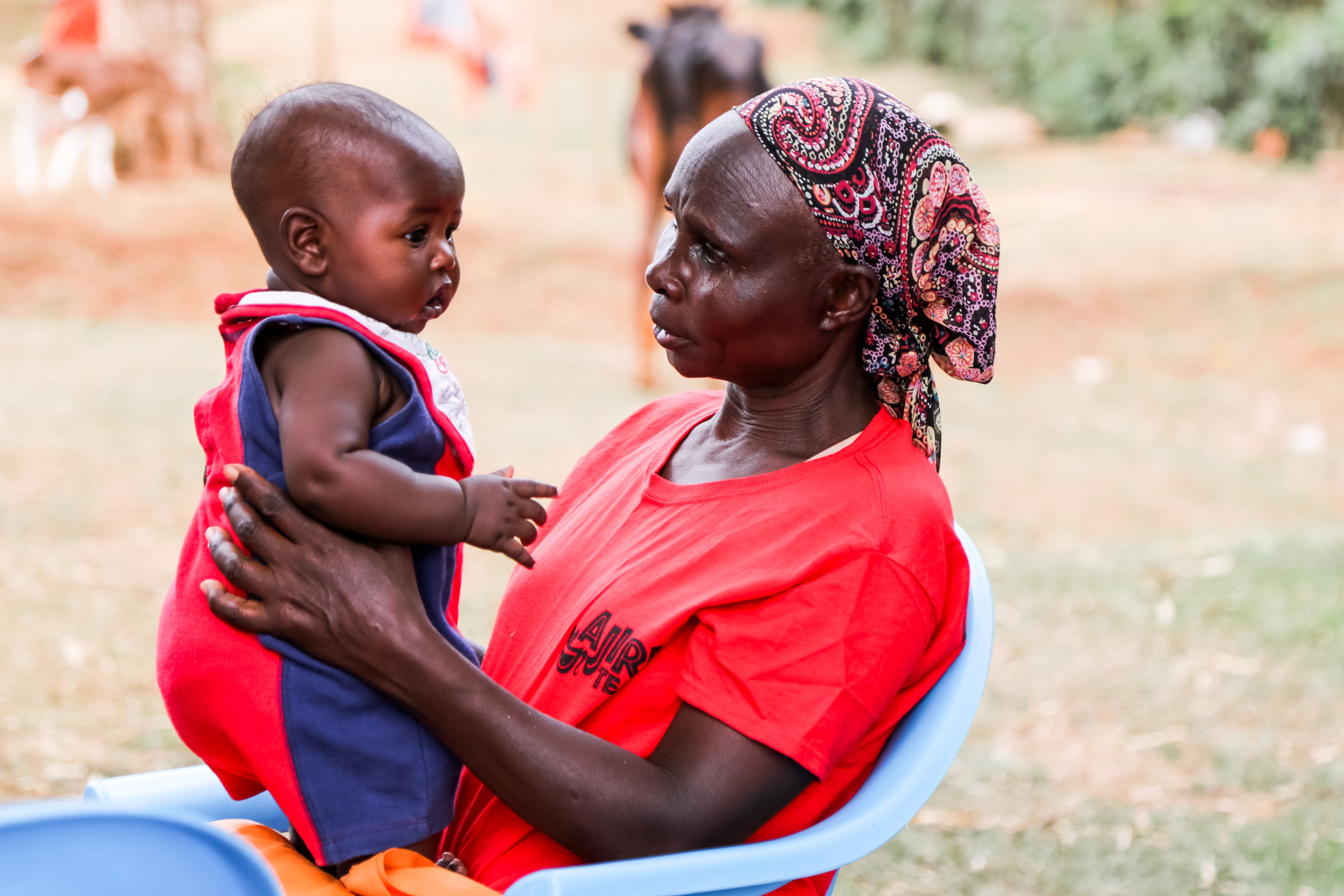

Ajiri Tea Company and the Ajiri Foundation are built on relationships. To do this, one has to be open. How can we better assist the women who make the packaging if we don’t know about their lives and some of their financial challenges? And how can we expect a child to tell us their problems at home or at school if they only know us as one-dimensional authority figures? If we can envision a new kind of company—one that gives all of its profits away—then we can envision a new kind of company culture—one that puts our very humanness in the forefront.
Difna shares with all of our students that she is an orphan. She tells them each of her struggles, her grief. She presents her hardship openly and empathizes with our students deeply. Regina is one of 10 children. Many of her brothers and sisters and even her aging parents have all helped Ajiri scholars. When a scholar is in an unsafe home-life situation, they have found refuge at Regina’s parents’ rural home or her sister’s house.
This level of involvement may not be "professional," but it is profoundly personal. A lot of problems can be solved with money. But our students aren’t problems to be solved. They are children yearning to be understood. Your donations and your orders are the shade and predictability of an avocado tree under which we all can gather.
Asante sana,
Kate, Regina, Sara, Difna, and Ann
Again, after touring Ajiri website, i must say this is all EXTREMELY REMARKABLE!!! i find this co. inspiring me to do more for others, be more compassionate, and to have hope in our world, our planet, each other. There reallly is hope. Alot of good things are happening inside folks’ hearts and minds. We are at the crossroads and i’m feelin hopeful. Much gratitude comin your way, dear Ajiri folks in the US and Kenya! Love truly is the answer.
Comments will be approved before showing up.

At Ajiri, we feel so lucky to be on this earth at the same time as all of you. Your purchase of tea holds a lot of that elusive power of art. Sure, your purchase is the transference of physical money that goes to support women and children. But your purchases of tea, time and time again, transfers this feeling of belief. You believe in these women. You believe in these kids. You believe that the world can be a better place.

People in the U.S. like to lament that there is no “village” anymore when raising children. But here’s the thing, Thomas was born without a village to support him. We made that village. You are that village. Every box of tea, every donation, gave Thomas the love and structure and opportunities to grow.
We will continue to share our good fortunes with others. We will continue to run Ajiri Tea throughout this tariff madness. We will continue to run Ajiri until we can’t. Running Ajiri is a type of protest in this constricting capitalist world. If to grieve means to have loved, then to protest means to hope.
Kate Holby
Author